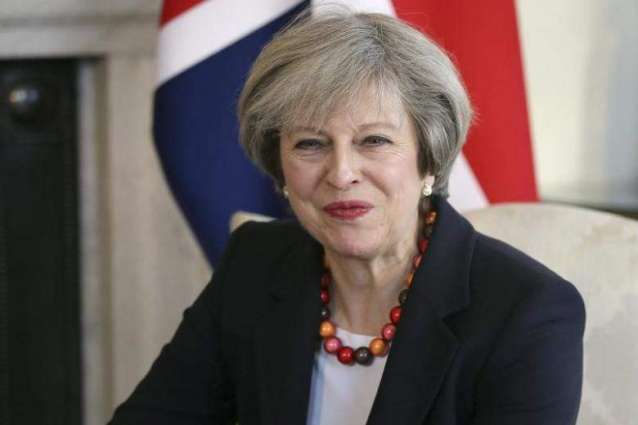The odds are against members of the UK ruling Conservative Party moving forward with their reported plot to oust Prime Minister Theresa May because they are likely to favor party unity instead, Gerard Batten, who leads the UK Independence Party (UKIP), told Sputnik on Thursday.
LONDON (Pakistan Point News / Sputnik - 13th September, 2018) The odds are against members of the UK ruling Conservative Party moving forward with their reported plot to oust Prime Minister Theresa May because they are likely to favor party unity instead, Gerard Batten, who leads the UK Independence Party (UKIP), told Sputnik on Thursday.
According to UK media reports, members and sympathizers of the Conservative Party and the pro-Brexit European Research Group (ERG) met on Tuesday to discuss potentially proposing a vote of no confidence in May's leadership. Although leading members such as former Foreign Secretary Boris Johnson and ERG Chairman Jacob Rees-Mogg were not reportedly present, at least 50 other Tory parliamentarians are believed to have been in attendance.
"I have no confidence in Mrs. May or the Conservatives, so those Tory MPs who are thinking about moving against her have taken a long time to getting around to realizing that she has every intention of betraying Brexit ... I have no confidence though that they'll actually do anything about it. Tory MPs will always betray their country in favor of party unity. It doesn't matter how bad things get, they will always side with their party rather than their country," Batten said.
UK media has suggested that two government ministers had informed the ERG that they would back the no-confidence vote against May. Moreover, the Eurosceptic group has reportedly compiled a list of 35 Tory members who have submitted no-confidence letters to Graham Brady, the chairman of the Conservative Party's 1922 Committee, tasked with informing the party's leadership about the mood of its members.
Under Conservative Party rules, an internal leadership election can be triggered if 15 percent of Tory lawmakers demand that the vote take place.
After reports about the Tories' plan to oust May emerged, Rees-Mogg downplayed the significance of the recent meeting, stressing that the prime minister had little to fear from the group.
May's leadership has, however, been hit by the recent move of the Democratic Unionist Party (DUP), the Tories' coalition partner, to back an ERG plan to exit the EU Single Market and Customs Union. While the ERG plan rules out the prospect of a hard border between Ireland and Northern Ireland, May's own proposals on future EU-UK relations, dubbed the Chequers plan, sparked uncertainty within the Tory and DUP ranks over the future of the Irish border.
Pushed through last July after chaotic exchanges at the prime minister's residence, the Chequers plan prompted disagreements inside May's cabinet, with Johnson and Brexit Secretary David Davis resigning in protest of the plan.
Stating in his resignation letter that the United Kingdom was heading for a "semi-Brexit," Johnson attacked the Chequers plan, claiming that the United Kingdom was likely to become a "colony" of the European Union if it is implemented.
Batten said he agreed with Jonhson's position, stressing that the situation could only get worse under May's leadership.
"[Johnson] is absolutely right. I don't trust Boris more than any other Tory, but he's absolutely right here. We've been a vassal state since 1972 and more and more power has been given to the EU, and now [May] intends to reach this 'leaving in name only' deal that will only ensure the situation gets even worse than it already is now," the UKIP leader pointed out.
The United Kingdom voted to leave the European Union in a referendum in 2016, but the vote left the country divided almost equally into Remainers and Brexiteers. The Brexit negotiations officially kicked off in June 2017 and are expected to be completed by the end of March 2019.
May has recently been facing criticism over her way of dealing with the Brexit process amid the possibility of a no-deal scenario voiced by many UK and EU politicians.




